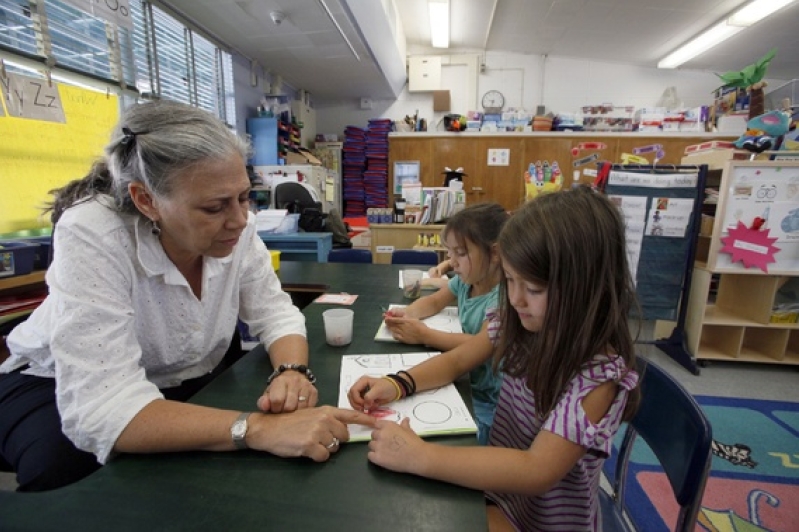
A disturbing new study has found that the Common Core State Standards harms children and will not alleviate poverty because it fails to properly understand how children learn.
According to a report jointly issued by Alliance for Childhood and Defending the Early Years, the Common Core curriculum, which has been adopted by public schools in 46 states, expects kindergartners to learn to read. However, past studies cited by the report have shown that the ability to read in kindergarten does not necessarily predict success in later grades.
"Preparing children to read has become the dominant activity in most kindergartens. A recent study by University of Virginia researchers found that already in 2006 kindergarten teachers spent as much time on literacy activities as on mathematics, science, social studies, music and art combined," the report reads.
The study, which was authored by three early education experts, also found that the Common Core's focus on reading undermines tried-and-true methods, such as play-based and experiential learning.
"Many children are not developmentally ready to read in kindergarten," the report asserts, "In addition, the pressure of implementing the standards leads many kindergarten teachers to resort to inappropriate didactic methods combined with frequent testing. Teacher-led instruction in kindergartens has almost entirely replaced the active, play-based,experiential learning that we know children need from decades of research in cognitive and developmental psychology and neuroscience."
According to studies that compared the results of play-based and experiential instruction to direct instruction, nearly half of those from low-income families that had direct instruction needed special education for social difficulties. In comparison, only six percent of those who had play-based learning required special education for social difficulties. By age 23, about one-third of the direct instruction learners had a criminal record, vastly outweighing only nine percent of the play-based learners.
Other studies referenced in the report found that children who receive play-based learning in early childhood grades have better reading and math comprehension, and earned higher GPA's in later grades.
The study concluded that teaching reading to young learners is "demoralizing," and "their tools and skills as learners as well as their enthusiasm for learning suffer when the demands are inappropriate."
"We see increased stress in children, teachers and families. We also see a weakening of the foundational capacities for learning that children should develop in the early years. We foresee lasting effects on children's health and wellbeing from both the increased stress to meet unrealistic goals, and the loss of skills and capacities that are no longer developed in kindergarten - and are increasingly lost from preschool classrooms as well."
The study then offers up some suggestions on how to reverse this nationwide trend: 1) Remove the kindergarten standards from the Common Core. 2) Invest in more and better research on early childhood education. 3) Convene a task force to make recommendations. 4) End all high-stakes testing up to third grade and promote assessments based upon observations of students. 5) Invest in teacher training and development, and place experienced teachers in low-income-neighborhood schools.






